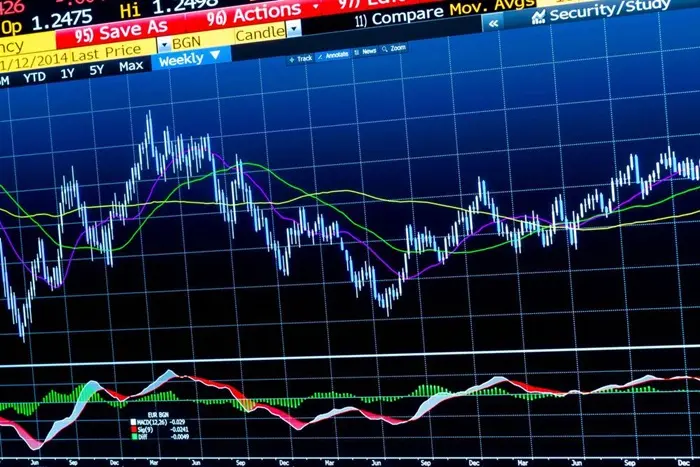In the world of finance, precision is paramount. When it comes to identifying securities, such as stocks, bonds, and other financial instruments, there are various systems and identifiers in place to ensure clarity and efficiency. One such key identifier is the CUSIP number. In this article, we will explore what a CUSIP number is, its significance, how it works, and its role in the financial markets.
Understanding the CUSIP Number
What is a CUSIP Number?
A CUSIP number (Committee on Uniform Securities Identification Procedures) is a unique alphanumeric code assigned to stocks, bonds, and other securities. It is used to identify financial instruments in the United States and is crucial in facilitating the trading, settlement, and transfer of securities. A CUSIP number can be thought of as a social security number for a security, offering a way to track and differentiate between financial instruments, regardless of the institution or exchange where they are traded.
The CUSIP number is typically nine characters long, consisting of a combination of letters and numbers. It provides a standardized identification system that enables financial professionals to efficiently process and manage large volumes of securities data. This system is particularly helpful in a global market where accurate and timely identification is key to maintaining financial order.
Structure of a CUSIP Number
A CUSIP number consists of the following structure:
First six characters (Issuer Code): These identify the issuer of the security, which could be a company, government agency, or another entity. For stocks, these first six characters often reflect the issuing company or entity.
Next two characters (Issue Number): These characters identify the specific issue or security. For stocks, it helps differentiate between different classes of stock or different types of securities issued by the same company.
Last character (Check Digit): The final character is a check digit, which is calculated using a specific algorithm. This check digit helps verify the accuracy of the CUSIP number and reduces the chances of errors in processing.
For example, a CUSIP number for a stock might look like this: 123456789, where the first six digits identify the company or issuer, the next two digits identify the specific issue of stock, and the last digit is the check digit.
How CUSIP Numbers Are Assigned
CUSIP numbers are assigned by the American Bankers Association (ABA) through the CUSIP Global Services (CGS), which is a division of S&P Global. When a new security is issued in the U.S. market, the issuer must apply for a CUSIP number. This number is then assigned based on the company’s name, the type of security, and other factors.
The process of obtaining a CUSIP number is straightforward for most securities. For stocks, the company must request a CUSIP number from CGS before the securities can be listed on the stock exchange or distributed to investors. The CUSIP number will remain the same for that particular security throughout its life, ensuring consistent identification even as the security is bought, sold, or transferred.
Why is a CUSIP Number Important?
Efficient Trading and Settlement
One of the primary purposes of a CUSIP number is to make the trading and settlement process more efficient. When investors or institutions trade securities, the CUSIP number helps identify the exact security being exchanged. This standardization ensures that there are no errors or mix-ups in the identification of securities, which could lead to issues with settlements, transactions, or clearing.
By assigning a unique identifier to each security, a CUSIP number streamlines the buying and selling process, especially in markets with a high volume of transactions. This is especially important when multiple securities with similar names or characteristics exist, as the CUSIP number serves to uniquely identify each security.
Record Keeping and Tracking
CUSIP numbers are also used for record-keeping purposes. When investors purchase or sell stocks, the CUSIP number is recorded in brokerage accounts, clearinghouses, and other financial institutions to track the security’s ownership and transaction history. This process makes it easier for investors, financial institutions, and regulatory bodies to keep accurate records of stock transactions.
Moreover, the CUSIP number plays a crucial role in managing dividend payments, stock splits, and other corporate actions. By associating each stock with a unique identifier, it ensures that all related actions are properly attributed to the correct stock issue.
Regulatory and Compliance Requirements
Regulatory bodies like the U.S. Securities and Exchange Commission (SEC) and other financial authorities require the use of CUSIP numbers to ensure compliance with reporting standards. The CUSIP number provides a consistent and standardized way of identifying securities, which helps authorities monitor and regulate the securities market effectively.
In addition, the CUSIP number aids in anti-money laundering (AML) and know-your-customer (KYC) processes. These regulations require financial institutions to accurately identify and verify the securities in their clients’ portfolios. Using CUSIP numbers ensures that securities are properly identified and reported for regulatory purposes.
Facilitating International Trading
While CUSIP numbers are primarily used for U.S. securities, they also play a role in facilitating international trading. Many financial institutions and investors outside the United States use CUSIP numbers when trading U.S. stocks and bonds. For global investors, CUSIP numbers make it easier to identify U.S. securities in a standardized manner, thus promoting cross-border investment.
CUSIP numbers are also used by entities like Depository Trust & Clearing Corporation (DTCC), which helps settle trades in U.S. securities. By standardizing the identification process, CUSIP numbers support smooth and secure transactions for both domestic and international investors.
How CUSIP Numbers Apply to Stocks
Identifying Stocks Using CUSIP Numbers
For stocks, the CUSIP number provides a precise identifier for shares issued by a specific company. For example, a CUSIP number can distinguish between two different classes of stock from the same company, such as common stock and preferred stock. This helps investors avoid confusion and ensures that trades are executed for the correct securities.
CUSIP Numbers for Different Classes of Stock
Many companies issue multiple classes of stock, each with different rights, dividends, and voting privileges. The CUSIP system helps distinguish between these classes by assigning a unique identifier to each type of stock. For instance, a company might have:
Common Stock (CUSIP 123456789): This is the regular stock issued by the company, often with voting rights and dividend payments.
Preferred Stock (CUSIP 123456780): This type of stock may have different dividend payments or other characteristics, and it will have a distinct CUSIP number to differentiate it from common stock.
Stock Splits and CUSIP Numbers
When a company conducts a stock split (i.e., issuing more shares to existing shareholders to lower the price per share), the CUSIP number for the new shares will differ from the original CUSIP number. The new shares will have their own unique CUSIP number, but they will represent the same company and have the same fundamental value.
Similarly, when companies issue new securities, such as convertible bonds or preferred shares, these new securities will receive their own unique CUSIP numbers, separate from the company’s stock.
Tracking Corporate Actions with CUSIP Numbers
Corporate actions such as stock splits, mergers, acquisitions, and dividend distributions are tracked using CUSIP numbers. For instance, if a company merges with another, the stockholders will receive shares in the newly merged company, each with its own CUSIP number. The CUSIP number helps investors keep track of how their investments are affected by such actions.
Trading and Settlement of Stocks
When trading stocks, investors and brokers use CUSIP numbers to ensure the correct identification of the securities being bought or sold. For example, if an investor wants to buy 100 shares of a particular company’s common stock, the transaction will reference the CUSIP number for that stock. This ensures that the trade is executed for the correct security, even if the company has issued multiple types of stock.
The Role of CUSIP Numbers in Global Finance
CUSIP Numbers in the International Market
While CUSIP numbers are used primarily for U.S. securities, their influence extends to international markets. Global investors use CUSIP numbers to identify U.S. stocks, bonds, and other securities when trading in international markets. CUSIP numbers provide a standardized identifier that helps ensure the accurate execution of trades across borders.
For instance, an investor in Europe looking to purchase U.S. stocks will use the CUSIP number to ensure they are buying the correct security. By using this identifier, investors can avoid confusion and misidentification, which could lead to costly mistakes in trading.
The Global Reach of CUSIP
In addition to U.S. securities, there are other international security identifiers like the International Securities Identification Number (ISIN). However, CUSIP numbers are often used in tandem with ISINs and other identifiers to streamline the identification process globally. While CUSIP numbers are mainly used for U.S. securities, their integration with global systems helps ensure that the identification process remains consistent across borders.
Conclusion
In summary, a CUSIP number is a vital tool in the world of finance that ensures the proper identification, trading, and settlement of securities, including stocks. It provides a unique identifier for each security, allowing financial professionals to process and manage securities efficiently. Whether you are a seasoned investor or new to the financial world, understanding the role of CUSIP numbers is crucial for navigating the complexities of securities markets. These numbers simplify the trading process, enhance regulatory compliance, and enable efficient record-keeping, making them indispensable in the world of finance.
Related topics:


































